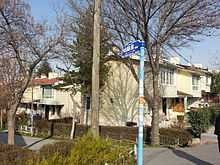Engin Arık
Engin Arık (October 4, 1948 – November 30, 2007) was a renowned Turkish particle physicist.[1] She was a professor and head of the Experimental High Energy Physics group at the Boğaziçi University.[2][3]
Arık was born in Istanbul and received her BSc in 1969 in mathematics and physics from Istanbul University. Subsequently, she received her MSc in 1971 and PhD in 1976 in experimental high energy physics from the University of Pittsburgh, United States.[2] She performed post doctoral studies at the Westfield College in University of London.
Returning 1979 to Turkey, she became a member of faculty at Boğaziçi University. In 1983, she left the university to work with Control Data Corporation for two years. Arık subsequently became a professor at Boğaziçi University in 1988.
Between 1997 and 2000, Arık was commissioned by the government to represent Turkey at the sessions of Comprehensive Nuclear-Test-Ban Treaty held at the International Atomic Energy Agency (IAEA) of the UN in Vienna, Austria.[4]
She was a member of the ATLAS and CAST collaborations at CERN in Switzerland.
Arık died in the Atlasjet Flight 4203 crash on November 30, 2007.[1][5] She was married to Metin Arık, also a professor in the same department at Boğaziçi University, and had two children.[6]
There is a street named after her in the İlkyerleşim neighborhood of the Yenimahalle district in Ankara, Turkey.

References
- ↑ 1.0 1.1 Physics expert, baby among plane dead, CNN, November 30, 2007. Retrieved November 30, 2007.
- ↑ 2.0 2.1 Engin Arik (Professor), Boğaziçi University physics department. Retrieved November 30, 2007.
- ↑ Welcome to my page, Engin Arik at Boğaziçi University. Retrieved November 30, 2007.
- ↑ Petrogas "Who is Prof. Engin Arık" (Turkish)
- ↑ Gülmez, Erhan (March 2008). "Faces and places: Engin Arik 1948–2007". CERN Courier 48 (2): 36.
- ↑ Newspaper Zaman November 30, 2007(Turkish)